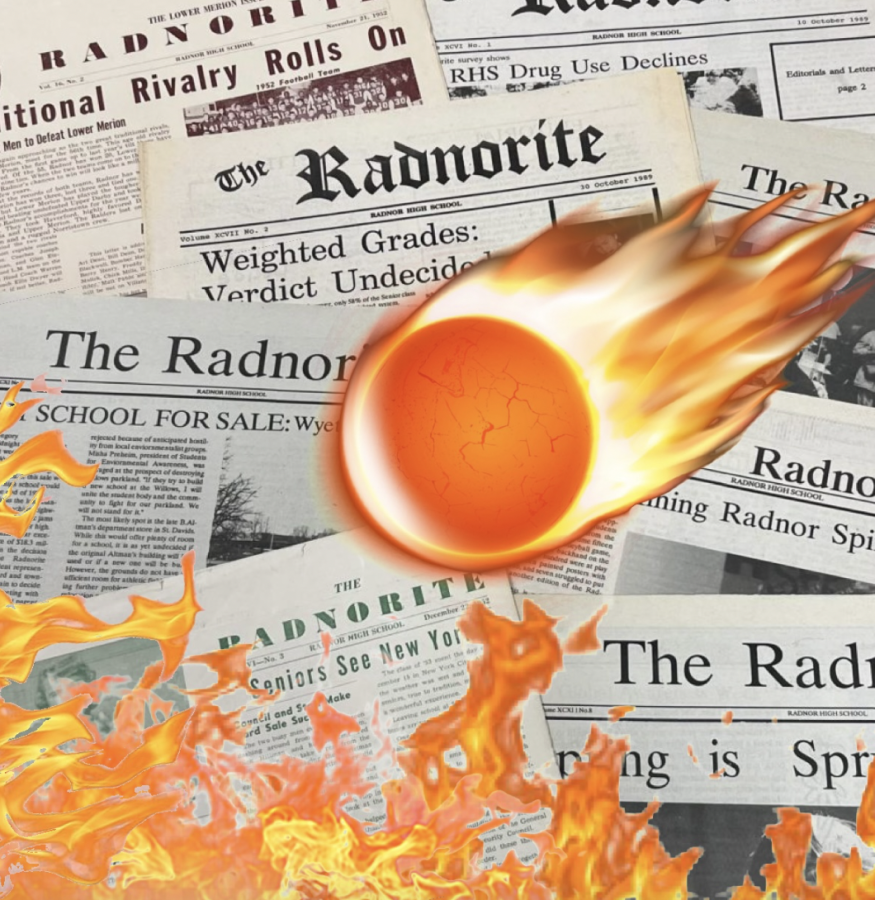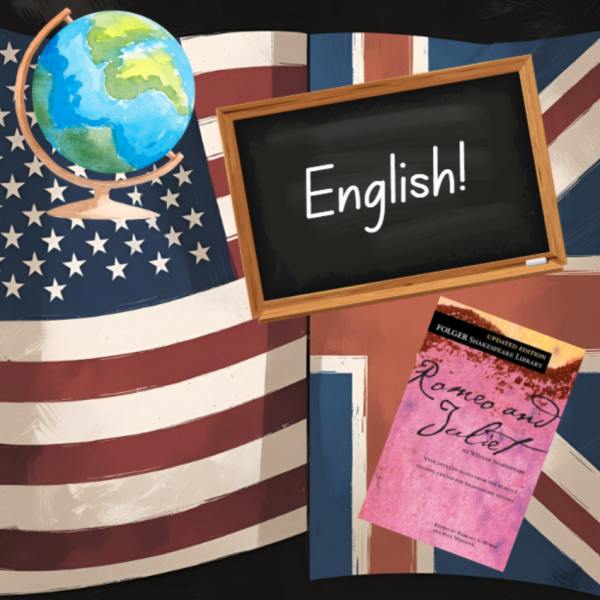BREAKING: Student Journalist Indoctrinates Entire Town into Believing that the Same Asteroid that Made Dinosaurs Go Extinct was Heading Back Towards Earth
May 12, 2023
Disclaimer: The following is a satirical piece of media– a joke, if you will. The following is not meant to offend or indoctrinate you, the reader, with any ideas that you do not deem 100% correct, agreeable, and concrete. Quick: what’s 2 + 2? If you said 4, you may continue reading.
SADNOR, PA– Last Sunday, the quiet town of Sadnor, PA, erupted in chaos when a local student journalist for the Sad Times was arrested on charges of treason, conveying false information, and hurting people’s feelings. The writer had published a report on a recently spotted shooting star. Residents and loyal readers of the newspaper responded in a panic, wiping out stores as they stocked up for what they assumed to be the end of the world. By the time word got out that this was just an article from a member of the high school’s astronomy club, several families were already hiding in their basement, and few received this clarification until today.
This cautionary tale has nothing to do with the town and everything to do with modern journalism. Several high school publications require student writers to receive approval from higher-ups before their articles can be published. This process, formally called the “If It Makes You Frown, Turn It Down” policy, ensures that incidents such as that in Sadnor will never repeat themselves. Yet, these cautionary measures are falling short of protecting the public.
Fighting Back Against Free Speech
“The minute I click on a 15-year-old’s op-ed, I am subject to believing every word on the page,” comments local mom and full-time lawyer, Tracy Bookham. Tracy is not alone. She is part of the community activist group, Families Against Free Speech (FAFS), protesting the excessive freedom of speech laws for student journalists. She went on to explain, “We’re effectively trying to get this two-part approval system bumped up to 35 stages, including: the approval of your parent’s Facebook followers, the “ok” from at least one zoo animal, Canadian prime-minister-approval, and, if necessary, approval from representatives at the International Space Station.” While members of the group acknowledged that this process may slow down the flow of news, they claimed it is critical, and long overdue. “One of the key responsibilities of a journalist is to understand that everything you write is offending somebody somewhere at some time. If you think otherwise, try rearranging letters— good chance you can form some derogatory words,” explained William Johnston, a father and neurosurgeon involved in the group. Although Johnston later disclaimed that he has studied STEM his whole life and only got into the whole “reading newspaper” thing last year, his point was widely agreed upon by other participants.
FAFS is not limited to parents, however; several students are also lobbying against free speech in their school newspaper. One senior claimed the Sad Times reported too many losses during their subpar football team’s fall season, “I know the purpose of the Sad Sport Report is to announce the scores of the past week’s games, but the honesty was unnecessary and upsetting.” Other students agreed, expressing similar complaints against op-eds, “The art of a solid opinion piece is to not have a dissenting opinion,” explained one sophomore, “If you conform to what the majority thinks, nobody’s going to get mad about it.”
Despite the protestors’ efforts, student-run newspapers continue to wreak havoc as they publish. Meanwhile, FAFS advises all people with a human brain capable of reading to avoid looking at any piece of media at all costs, unless they get the green light from somebody with the same set of beliefs and morals as themselves. Above all, they encourage everyone to stay away from satire.







